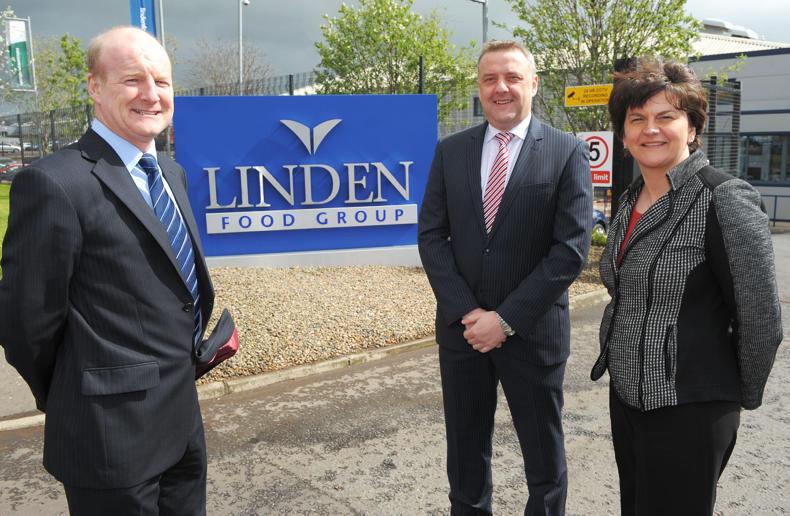Less than two years after ABP Food Group and Linden Food Group entered into a 50:50 joint venture in the Slaney Foods business in the Republic of Ireland, a similar arrangement has emerged for the UK arm of the Linden business.
The deal, agreed in principle, would mean that ABP will acquire a 50% stake in Linden, to include facilities in Dungannon (slaughter and retail packing), an abattoir at Burradon, England, and high-end meat supplier, Kettyle Irish Foods, in Fermanagh. As part of the process, it is understood that Linden’s majority shareholder, Fane Valley Co-op, has acquired the remaining shares in Linden held by the Waugh family, and then moved to complete the proposed deal with ABP, leaving both parties with 50%.
It means Linden’s procurement director William Waugh will no longer have a stake in the business, but is understood to be remaining in his existing post.
Other key management figures, including Linden managing director, Gerry Maguire are also to remain.
The deal will have to be ratified by competition authorities, most likely at a European level.
Commenting on the proposed new arrangement, Fane Valley chief executive Trevor Lockhart said that the experience of working with ABP in the Republic of Ireland has been very positive, and the company now wishes to build on this success.
In one regard, the deal makes good business sense. In 2011, Linden opened a new £10m retail packing facility in Dungannon where the focus has very much been on new product development, and delivering specialist lines to upmarket retailers such as Marks & Spencer.
But, unlike ABP, Linden lacks direct market access to the big four British supermarkets (Tesco, Sainsburys, Asda and Morrisons). The tie-up with the global sales network offered by ABP should allow the company to optimise the value of a carcase.
However, the decision to sell a 50% stake in Linden to ABP means Fane Valley Co-op will be a significantly smaller business than it was two years ago (although presumably with cash to invest), coming after it also sold its dairy business (Armaghdown) to Lakeland Dairies in 2016.
Competition
The other issue for NI farmers is what effect this deal has on local competition for cattle. Out of seven main slaughter plants in NI, three will effectively be controlled by ABP (Newry, Lurgan and Linden), leaving two Foyle Food Group plants (Omagh and Campsie), WD Meats in Coleraine and Dunbia in Dungannon.
Ulster Farmers’ Union (UFU) deputy president, Victor Chestnutt said that the proposed deal for Linden will cause some farmers alarm.
“It is early days but, ultimately, we will judge the success of this new venture on the future producer returns for cattle and sheep. Despite the buoyant prices at the minute, profitability on beef and sheep farms remains low,” said Chestnutt.
There is also the ongoing issue of over-capacity in the slaughter sector in NI. While all the main players currently insist that they are committed to retaining their sites, logic would suggest that further change is likely.






 This is a subscriber-only article
This is a subscriber-only article










SHARING OPTIONS: